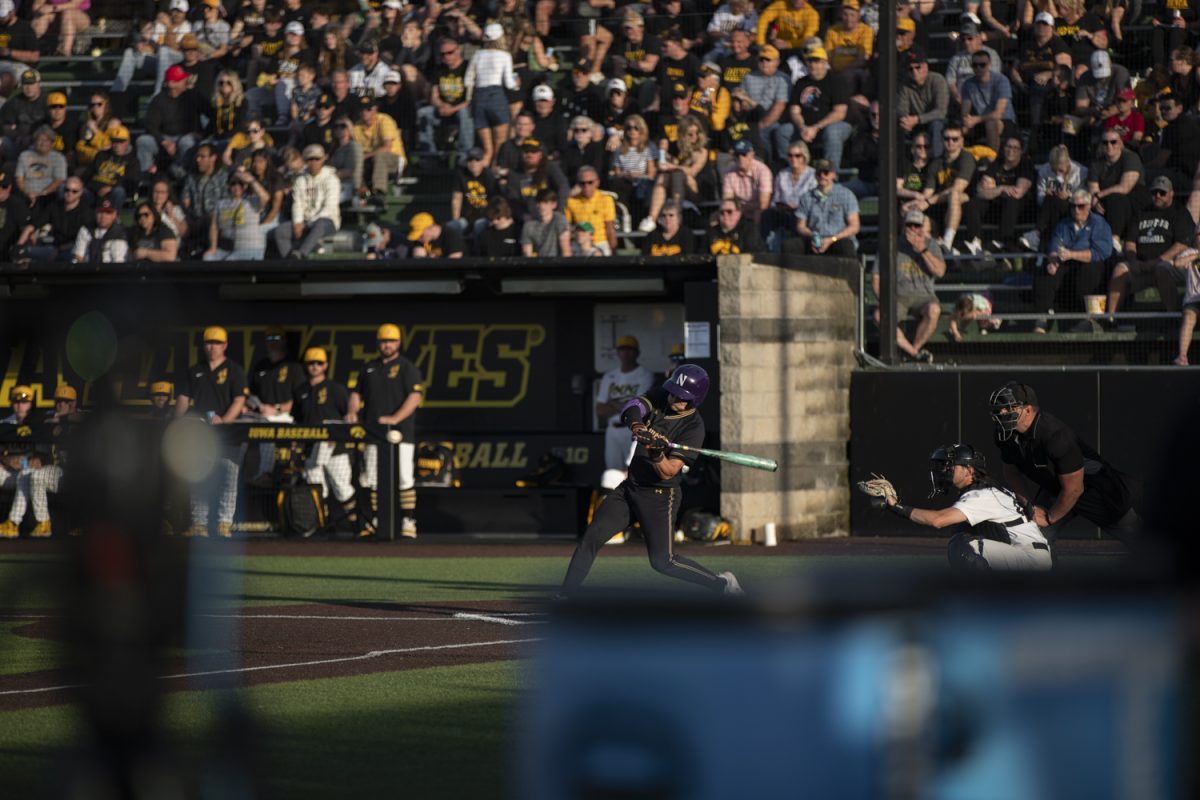Two Daily Iowan sports staffers — who are both fanatic baseball fans — debate if the MLB’s All-Star game structure helps or hurts the sport as a whole.
No
I remember rolling on the ground in laughter when some crafty pitcher pretended the rosin bag was the ball and delivered it over the plate during an MLB All-Star Game early in my childhood. I was born in a baseball household, tucked away in the woods of rural Michigan. My family rarely misses a Tiger game. We’re baseball people.
The mid-season game was the highlight of my July — my own kind of fireworks.
I was a 10-year-old girl in a Brandon Inge jersey, ecstatic to see players dumping Gatorade on the catcher and stealing each other’s batting gloves. The elementary school me loved watching my baseball heroes walking up to the plate with a huge smile, instead of the serious, all-business attitude they have to have when the games count as one of the season’s 162.
The All-Star Game was fun. Just fun. It was good to see someone besides Papi smile.
But then there was the 2002 disaster that we all know — the 11-inning game with no winner, the game MLB Commissioner Bud Selig ended early to avoid injury to his moneymakers.
And then All-star Game’s kiss of death showed up in the second week of July in 2003: The game started to actually count. The winner of each year’s contest gets home-field advantage in the World Series.
The lighthearted, fun-and-games event suddenly played a crucial role in the country’s most serious and direly important event.
And it ruined everything.
The game counts now, so the players know they have to play hard. No more pitching rosin bags — instead, the pitchers have to pitch real with real 95-mph fastballs and wicked curve balls.
Justin Verlander was voted to be the American League’s starting pitcher, but because the Tigers’ rotation landed him on the mound the night before the break, he was rendered ineligible to pitch in order to save his arm. Verlander won the 2011 MVP and Cy Young, but he didn’t even get to start in the All-Star Game because pitching even an inning of real baseball put his arm at risk.
Too bad the game wasn’t just for fun, huh?
Baseball fans could have seen the league’s most dominant hurler last year if he could have pitched in game that wasn’t end-all, be-all. Verlander could have left his 98-mph fastballs in the regular season and pitched in the 90s just in joy. He could have put a little less elbow in his curve, a little less wrist in his follow through, a little less effort in an inning or two on the mound.
Players are expected to play hard when the game means so much, so they sit out instead of putting their body at risk during their vacation from playing every day. But that fear wouldn’t exist if the All-Star Game was still just a time for all teams to gather in one place and simply celebrate baseball.
I doubt Verlander would ruin his arm pitching a rosin bag.
— by Molly Irene Olmstead
Yes
Bud Selig dropped the ball at the 2002 mid-summer classic in Milwaukee, when he ended the game in a 7-7 tie. The MLB had to do something drastic to keep fans interested in the All-Star game, and it did. In fact, it pulled off what I consider to be one of the most successful moves in sports history.
It granted the winning league home-field advantage in the World Series.
Genius, pure genius.
The level of play has gone up significantly in the recent years. Players aren’t chit-chatting as much with each other and fooling around. Both sides take the game seriously, which is good for the sport and the audience.
The All-Star Game has also made the second week in July mean something, which was not the case each year up until 2003. Before that, there was a meaningless weeklong black hole in the middle of the baseball season.
Now, I am well aware that I am in the vast minority on this topic and that the "baseball elite" will tell you that we should get rid of this rule. So let’s take a look at how baseball decided the host team of its championship up until 2003.
Home-field was never given to the team with the best overall record in the regular season, a common misconception among fans. Instead, the right to host four games in the World Series instead of three switched on and off between the leagues each year.
No one had any say in who hosted October’s most important seven games.
Do we really want to go back to that? Of course not.
Now, the players could potentially be in the fall’s spectacular series are the very ones getting a say. They’re deciding their own advantage, not the randomness of switching every other year.
What is the harm in making the game relevant? Absolutely nothing.
The NBA All-Star Game, NHL All-Star Game, and the NFL’s Pro Bowl. What do these all have in common? I’ve only watched about 10 minutes of the three collectively over the past 10 years. They can’t hold my interest for longer than about 30 seconds.
But the MLB All Star Game? I haven’t missed a minute of it over the same decade.
— by Tom Clos






